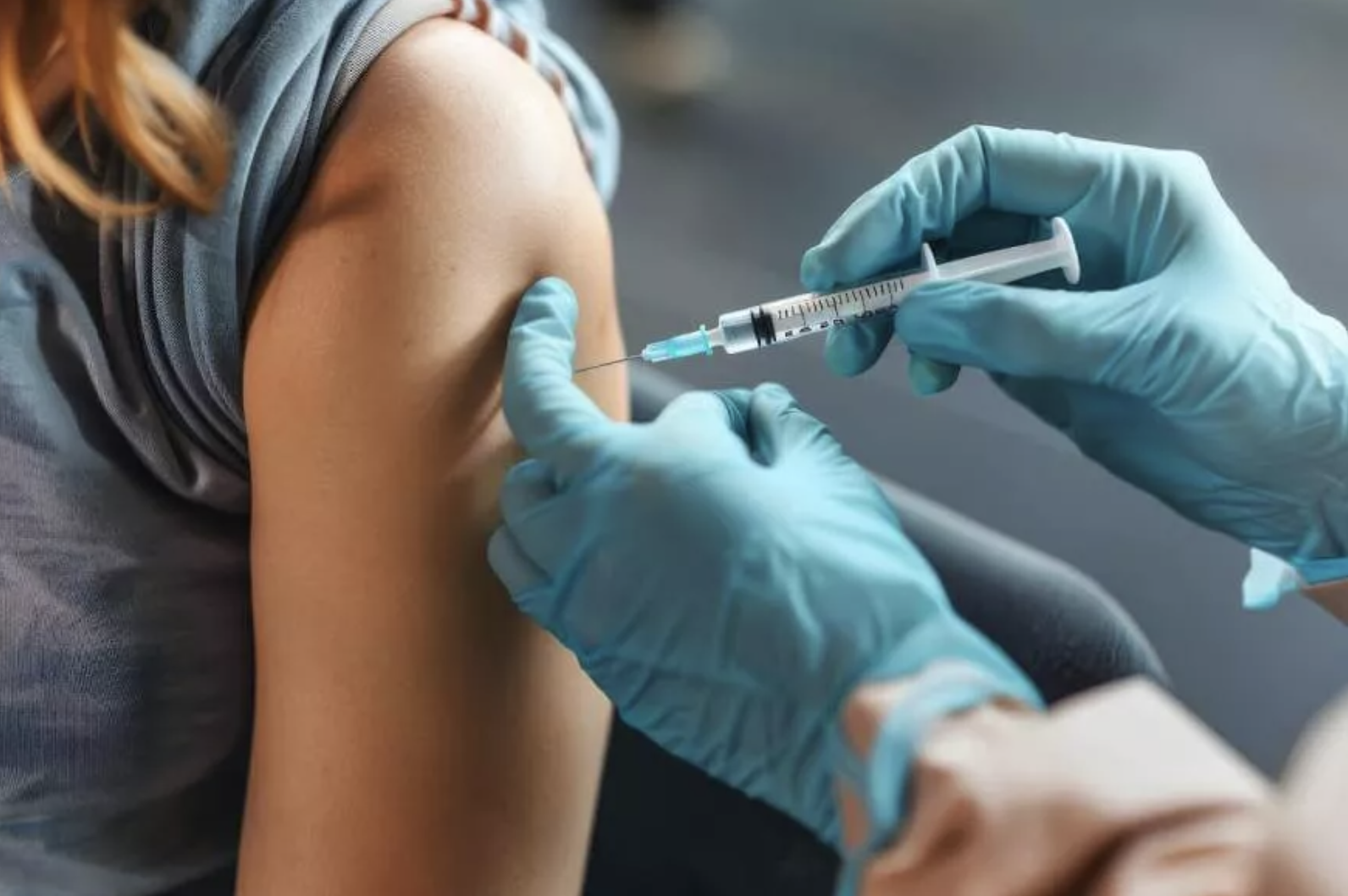Whether you want to know about the latest trends in skincare, beauty treatments, compounding, or overall wellness, we’ve (probably) covered it! Be sure to check back regularly for any new posts - thank you for joining us on this journey to a happier, healthier, more beautiful you!
Looking for a specific topic? ↓
Don’t know where to start? Try searching: compounding | skincare | Morpheus8
Why You Might Weigh More—but Look Better (Thanks, Muscle)
When you step on the scale, you expect progress to mean a smaller number. But what if you’ve been exercising, eating well, and actually feel healthier, yet the scale goes up? It can feel confusing, but here’s the truth: gaining muscle can make you weigh more while looking leaner and fitter. And that’s a good thing.
GLP-1 Medications vs. Hormone Therapy: Do You Need Both?
If you’re trying to lose weight and feel better, you’ve probably heard about GLP-1 medications. You may have also heard about hormone therapy especially if you’re dealing with low energy, mood swings, or trouble sleeping.
Adrenal Fatigue + Weight Loss: Why You’re Exhausted Even When the Scale Moves
Losing weight should make you feel lighter, healthier, and more energized. But for some people, the opposite happens—you start dropping pounds, but you feel more tired than ever. If that’s you, adrenal fatigue could be part of the picture.
Why Your Period Changes on GLP-1s (and When to Be Concerned)
If you’ve noticed changes in your period since starting GLP-1 medications like semaglutide or tirzepatide, you’re not alone. These medications are powerful tools for weight loss and blood sugar control—but they can also cause some surprising changes in your menstrual cycle. Let’s break it down simply and clearly.
Why Lipo-Mino and MIC Shots Work Better with GLP-1s—Not Instead of Them
Lipo-Mino and MIC B injections are popular injectable treatments designed to support fat metabolism, boost energy levels, and aid in weight management. Lipo-Mino injections typically combine lipotropic compounds (such as methionine, inositol, and choline) with key nutrients like B-complex vitamins and L-carnitine, which help the body break down and eliminate fat more efficiently. MIC B injections focus on the core lipotropic agents plus vitamin B12, enhancing energy production and supporting liver function. These injections are often used as part of a broader wellness or weight loss program, giving the body the nutritional support it needs to function at its best while promoting healthy metabolism and fat loss.
Why Am I Sleeping So Poorly on a GLP-1 Medication?
Poor sleep is a common but often overlooked side effect of GLP-1 medications like semaglutide or tirzepatide. As your body adjusts to changes in appetite, digestion, and blood sugar regulation, you may experience nighttime discomfort, restlessness, or even increased anxiety. Slower gastric emptying can leave you feeling overly full at bedtime, while hormonal shifts and reduced caloric intake may disrupt your natural sleep-wake cycle. Fortunately, these sleep issues are often temporary and can be managed with simple adjustments to your routine, like changing the timing of your dose, avoiding late meals, and ensuring you’re getting enough nutrients to support restful sleep.
Why Berberine Works Better When You’re Already on a GLP-1
Berberine is a natural compound found in several plants, including goldenseal and barberry, and has been used for centuries in traditional medicine. It’s best known for its ability to help regulate blood sugar levels, making it a popular supplement for those managing type 2 diabetes or insulin resistance. Berberine also supports cardiovascular health by improving cholesterol levels and reducing inflammation. Recent studies suggest it may aid in weight management by activating AMPK, a cellular enzyme involved in energy balance. While it offers many benefits, berberine should be taken with guidance, especially if you're on other medications, as it can interact with certain drugs.
My Hair Is Thinning, could it be due to my GLP-1?
Experiencing thinning hair while on a GLP-1 medication like semaglutide or tirzepatide can be frustrating, but it’s often temporary. Rapid weight loss, reduced nutrient intake, and shifts in hormone levels or stress can all contribute to increased shedding. Supporting your body with protein-rich meals, key vitamins, and gentle hair care can help restore balance and encourage healthy regrowth as your body adjusts.
I’m Losing Weight, But I’m Bloated or Constipated!
Feeling bloated while on a GLP-1 medication is a common side effect for some people due to how the medication works. GLP-1s slow down gastric emptying, which means food stays in your stomach longer—helping you feel full, but also potentially causing bloating or discomfort. Additionally, smaller meal sizes, changes in digestion, and altered gut motility can contribute to that “puffed-up” feeling. Staying hydrated, eating slowly, and avoiding gas-producing foods can help manage bloating as your body adjusts to the medication.
I Don’t Have Any Energy to Work Out
It's common to feel a dip in energy while on a GLP-1 medication, especially in the beginning. These medications can suppress appetite so effectively that some people don’t eat enough to fuel their bodies properly—leading to fatigue, weakness, or reduced motivation to work out. Additionally, changes in blood sugar levels and mild nausea can make movement feel less appealing. Prioritizing balanced meals, staying hydrated, and starting with gentle exercise can help your body adjust and bring your energy back up.
Why Am I Plateauing During Weight Loss?
Plateaus are common on weight loss medications like GLP-1s because, as your body adjusts to the treatment and loses fat, your metabolism naturally slows down. This means you burn fewer calories at rest, making continued weight loss more challenging. Hormonal changes, reduced muscle mass, and habits like under-eating or lack of movement can also contribute—but with the right support and strategy, you can break through it.
Why InBody Scans Are a Game-Changer for Your Health Journey
InBody scans are a powerful tool for anyone on a weight loss journey because they go far beyond the number on the scale. These scans provide a detailed analysis of your body composition—including fat mass, muscle mass, and water weight—allowing you to track real progress and make informed decisions about your health. Especially during medical weight loss programs or GLP-1 treatments, InBody scans help ensure you're losing fat (not muscle) and can reveal subtle improvements even when the scale doesn’t budge. It’s a smarter, more motivating way to measure success and tailor your plan for the best possible results.
Fueling Your Fitness: Why Strength Training Is Essential While on a GLP-1 Medication
GLP-1 medications slow gastric emptying, decrease hunger hormones, and help regulate blood sugar—all of which result in reduced cravings and lower calorie intake. This often leads to significant and sometimes rapid weight loss. However, without intentional movement or resistance training, the body can lose muscle along with fat.
GLP-1 Medications: A Game-Changer for Women with Menopause, PCOS, or Endometriosis
Women facing hormonal imbalances from menopause, PCOS (Polycystic Ovary Syndrome), or endometriosis often find themselves struggling with stubborn weight gain, fatigue, insulin resistance, and increased inflammation. Traditional diets and exercise sometimes aren't enough—and that’s where GLP-1 medications come into play. Originally designed for diabetes management, these medications are now showing powerful benefits for women managing hormone-related conditions.
Microdosing with a GLP-1: A Gentle Approach to Weight Loss with Big Benefits
Microdosing on a GLP-1 medication means starting with a lower dose and gradually increasing over time to allow your body to adjust more gently. This approach can minimize common side effects like nausea while still helping to control appetite and support steady, sustainable weight loss. It’s also a great option for maintaining your results long-term—many clients continue on a low dose after reaching their goal weight to help prevent rebound weight gain and stay on track.
Why B12 Injections Are the Energy Boost Your Body Has Been Craving
Vitamin B12 injections are a quick and effective way to boost energy, improve focus, and support a healthy metabolism. They deliver the vitamin directly into the bloodstream for fast absorption—ideal for those who feel fatigued, experience brain fog, or struggle to get enough B12 from diet alone. With regular injections, many people notice better mood, mental clarity, and a stronger sense of overall wellness.
Energy Up, Fat Down: Why Lipo-Mino Is Your New Favorite Shot
MIC-B injections are a powerful blend of Methionine, Inositol, Choline, and vitamin B12 designed to boost energy, support fat metabolism, and enhance liver detoxification. They're commonly used to complement weight loss programs and help combat fatigue or sluggishness. With consistent use, MIC-B can help you feel more energized, focused, and supported on your wellness journey.
The Little Shot That Does A Lot: Why Everyone’s Talking About MIC-B
MIC-B injections are a powerful blend of Methionine, Inositol, Choline, and vitamin B12 designed to boost energy, support fat metabolism, and enhance liver detoxification. They're commonly used to complement weight loss programs and help combat fatigue or sluggishness. With consistent use, MIC-B can help you feel more energized, focused, and supported on your wellness journey.
Let’s Talk Retinol!
What is retinol? When do I start using it? All your questions and more answered.





















